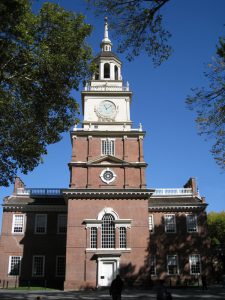A Philadelphia statute that bans employers from inquiring about applicants’ salary histories is unconstitutional, the U.S. District Court for the Eastern District of Pennsylvania has ruled. At the same time, it let stand that portion of the law that forbids employers from basing new hires’ salaries on their wage history.

Independence Hall in Philadelphia
Philadelphia was the first city to pass salary legislation when, in January 2017, Mayor Jim Kenney signed the Philadelphia Wage Equity Ordinance with an effective date of May 23 that year. Almost immediately, the Chamber of Commerce for Greater Philadelphia filed suit to block it. This April 30 came the answer, with the ruling that the law’s “Income Provision” was unconstitutional while its “Reliance Provision” was fine as written.
As a result, employers may now inquire about job applicants’ salary histories but cannot base their new salaries on past wages.
The chamber’s case rested on violations of First Amendment “commercial free speech” rights. The court concurred that, as written, the language for the Inquiry Provision failed to justify curtailment of First Amendment rights, writing that “more is needed” in the way of justification. On the Reliance Provision, the court agreed with the city that the provision affected only conduct, not free speech.
The case was The Chamber of Commerce for Greater Philadelphia v. The City of Philadelphia Commission on Human Relations.
